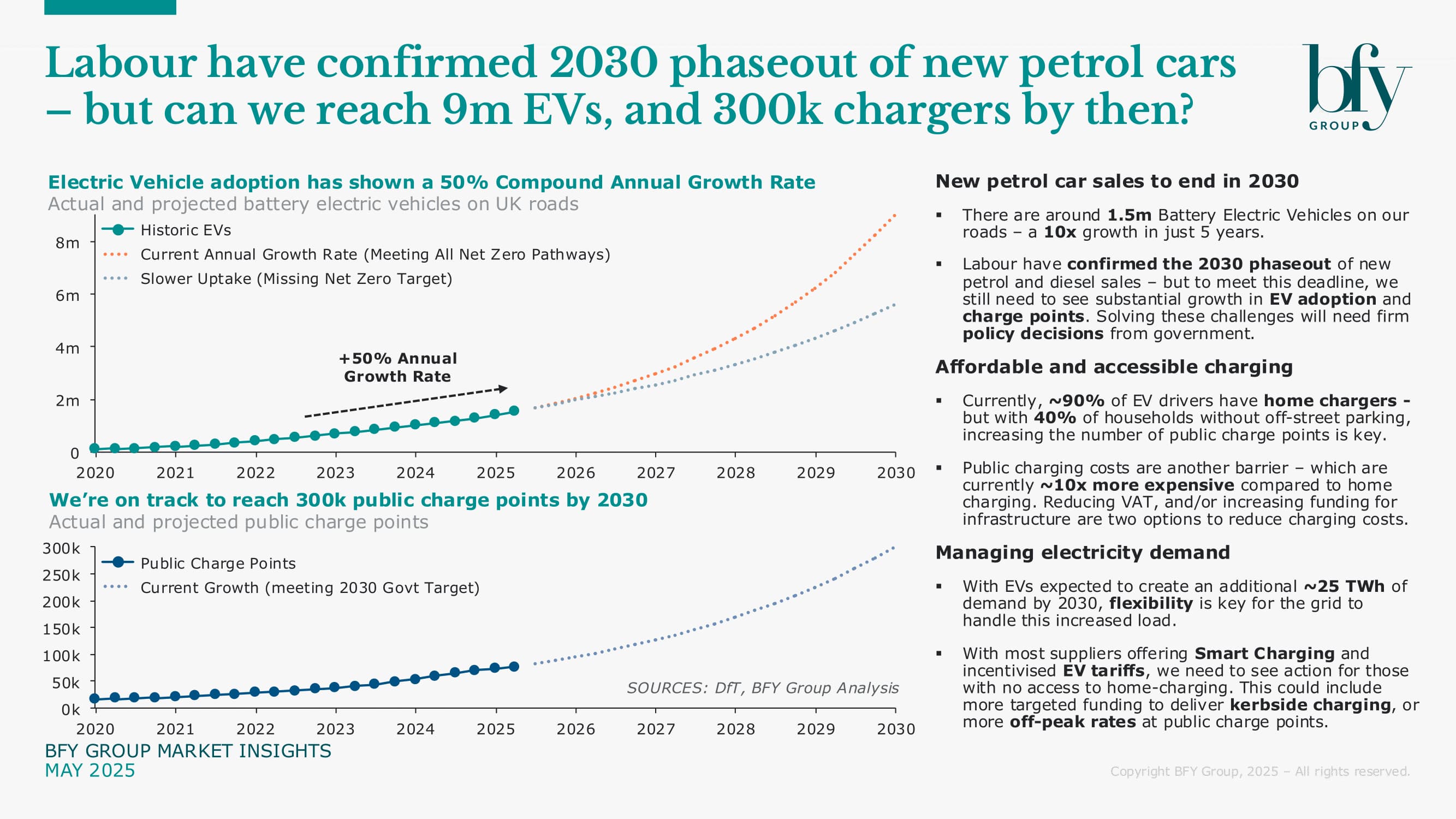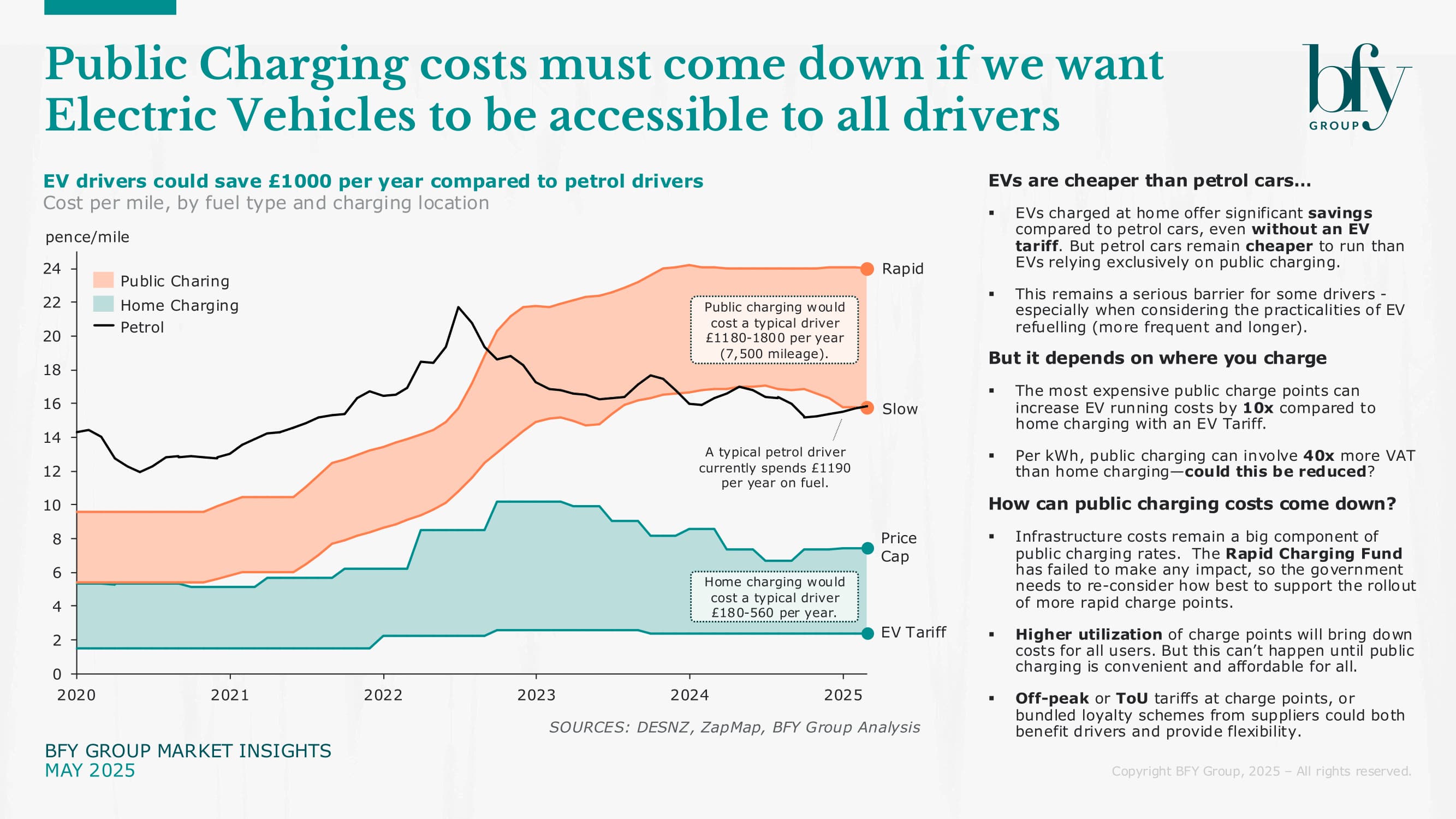The UK’s EV rollout is accelerating – and with Labour confirming the 2030 phaseout of new petrol and diesel cars, the pressure is on to ensure readiness.
The UK will need to scale up to 9 million EVs and 300,000 public charge points by 2030. Are we ready for the challenges – and the opportunities – this presents?
What the numbers tell us
To meet the 2030 targets, the UK needs significant advancements in EV adoption and charging infrastructure:
- EVs: 1.5 million on the road today → 9 million needed by 2030 (6x increase)
- Public charging points: 50,000 today → 300,000 needed (6x increase)
- Electricity demand: ~25 TWh additional demand expected by 2030
Managing the challenges of affordability, charging access, and increased energy demand will be critical to the rollout's success.
Labour have confirmed 2030 phaseout of new petrol cars
For the UK to meet its 2030 goals, firm policy decisions are needed to support rapid growth in both EV adoption and public charging points. Labour's confirmation of the 2030 phaseout adds urgency – but this should be matched with coordinated support.

Affordable and accessible charging
Around 90% of current EV drivers rely on home charging – but 40% of households lack off-street parking.
- Public charging can cost up to 10x more per mile than home charging with an EV tariff
- Public charging is subject to 40x more VAT per kWh than domestic supply
- The Rapid Charging Fund has so far failed to deliver meaningful progress
Options to address this include VAT equalisation and new mechanisms to fund public charging infrastructure. Meanwhile, suppliers and networks can explore:
- Time-of-Use (ToU) tariffs at public charge points
- Bundled loyalty schemes to reward regular users
Both could help lower costs and drive adoption.
Managing electricity demand
EVs are expected to create an additional ~25 TWh of electricity demand by 2030. This will place new pressure on the grid, making flexibility essential.
- Smart Charging remains a key lever, especially where supported by EV-specific tariffs
- Those without access to home charging would benefit from innovation in kerbside solutions and off-peak pricing at public charge points
Targeted funding and clearer market incentives can help unlock these solutions at scale.
Running costs – and why location still matters
EVs can offer significant savings compared to petrol cars – often up to £1000 per year when charged at home. For drivers relying exclusively on public infrastructure, petrol remains cheaper.
This cost gap, combined with the practical realities of EV refuelling (more frequent and longer), is a major adoption barrier.

To reach 9 million EVs and 300,000 charge points by 2030, the UK must ensure EVs are affordable and practical for all drivers – not just those with a driveway. Addressing VAT, improving infrastructure funding, and incentivising flexible charging could be crucial next steps.
For more on our analysis of the EV rollout, and the opportunities for suppliers to support EV adoption, contact Matt Turner-Tait.
Matt Turner-Tait
Senior Manager
Matt lead clients through key strategic projects exploring growth opportunities, business models, competitive advantage, and mergers & acquisitions.
View Profile

